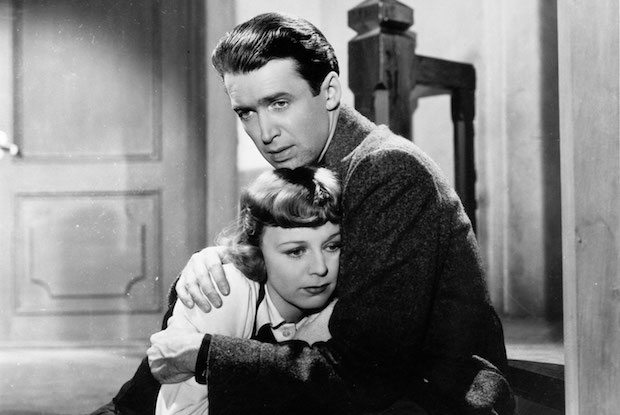Catch Brandeis faculty at the National Center for Jewish Film's annual festival

Margaret Sullavan and Jimmy Stewart in "Mortal Storm"
The National Center for Jewish Film’s annual film festival is co-sponsored by ten university organizations and features 25 screening events in the Boston area, including talks with Brandeis faculty.
The festival runs from May 7 to 19 with events at the Museum of Fine Arts, Boston and the Coolidge Corner Theatre in Brookline.
Here is a look at some of the events featuring Brandeis professors and scholars. A full schedule and ticket information can be found on the festival’s website:
"Mortal Storm"
May 7, 7:30 p.m.
Coolidge Corner Theatre
Screening and Q&A with Brandeis University professor Thomas Doherty
Opening Night Film
Starring Margaret Sullavan and Jimmy Stewart and released in June 1940, before America’s official entry into World War II, "Mortal Storm" was MGM’s first anti-Nazi film, and one of only two films made in Hollywood during the war that explicitly identifies Jews as victims of Nazism. The Nazis’ rise to power splits a family apart in this melodrama set in Germany in 1933. A Jewish professor (Frank Morgan) refuses to conform his teaching to Nazi doctrine and pays the price. His daughter Freya (Sullavan) leaves her fiancée (Robert Young), who is becoming a dedicated Fascist, for her childhood friend Martin (Stewart), a defiant anti-Nazi, with whom she attempts escape. This screening featured a 35mm restored print courtesy of UCLA Film & Television Archive.
"Leona"
May 9, 7:30 p.m.
Museum of Fine Arts, Boston
Screening and Q&A with Dalia Wassner, Project on Latin American Jewish & Gender Studies, Hadassah-Brandeis Institute (Additional screening May 11 without Q&A)
A young woman from Mexico City finds herself torn between her Syrian-Jewish family and a forbidden love in this moving, insightful romance. Best Actress winner at the Morelia Film Festival, Naian González Norvind gives an intimate, honest portrayal as Ariela, an independently-minded artist living with her family in a cloistered Jewish neighborhood. Pressured to find an appropriate suitor, serendipity leads to a passionate courtship with a non-Jewish writer who shows her a world of possibilities beyond her sheltered life. As their feelings deepen, Ariela must weigh their unsanctioned relationship against rejection by her family and community, where religious values and traditions run deep.
"The Light of Hope" / "La llum d’Elna"
May 12, 3 p.m.
Museum of Fine Arts, Boston
Introduction by Sabine von Mering, Director, Center for German & European Studies, Brandeis University (Additional screening May 17 without Q&A)
This award-winning Spanish drama tells the true story of Elisabeth Eidenbenz, founder of the Mothers of Elne, a maternity home in the south of France on the Spanish border. Realizing that refugees fleeing Franco’s regime in Spain and Vichy refugee camps were physically vulnerable, Eidenbenz transforms an old villa into a birth clinic. Despite the surrounding hardship, the villa becomes a safe haven for mothers and children. But when French authorities demand she turn over the Jewish refugees, Eidenbenz must make a decision that could endanger everyone in the maternity. By the end of the war, Elisabeth and her female staff had saved the lives of hundreds of mothers and children. After the war, Eidenbenz was honored by Yad Vashem as a Righteous Among Nations.
“Carl Laemmle”
May 15, 7:30 p.m.
Museum of Fine Arts, Boston
Screening and Q&A with Brandeis University Professor Thomas Doherty
A pioneering mogul of early cinema and an unsung Jewish-American hero, Carl Laemmle certainly lived his motto, “it can be done.” Laemmle, a German émigré, founded Universal Pictures in 1912. Laemmle helped establish Hollywood California as the world’s movie capital, beat back Thomas Edison’s monopolization of the film industry, hired women directors and African American actors, and gave many Hollywood legends their starts, including Walt Disney, John Ford, William Wyler, and Irving Thalberg. But Laemmle’s legacy extends far beyond Hollywood: “Uncle Carl,” as he was known on the studio lot, dedicated his personal fortune to rescuing more than 300 Jewish families from Nazi Germany.
The following Brandeis institutes, departments and centers are co-sponsoring, co-presenting or partnering on events: The Tauber Institute for the Study of European Jewry, Sarnat Center for the Study of Anti-Jewishness, Center for German and European Studies, Schusterman Center for Israel Studies, Hadassah-Brandeis Institute, Brandeis University Alumni Association, Hornstein Jewish Professional Leadership Program, Brandeis National Committee, and the Department of Near Eastern and Judaic Studies.





